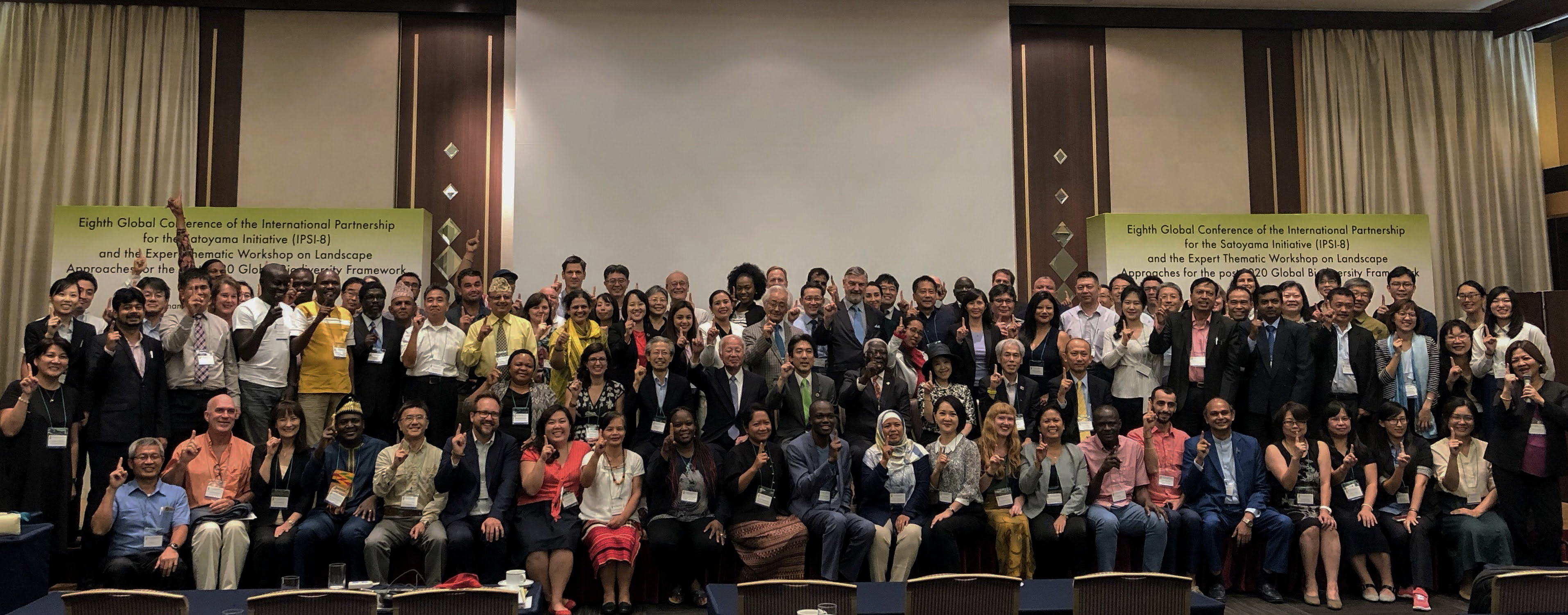UPDATE: The official report for this workshop is now available for download here.
A workshop was held by the IPSI Secretariat and the Institute for Global Environmental Strategies (IGES) on 22 and 23 July 2014 at the Pacifico Yokohama Conference Center in Yokohama, Japan, as part of a major effort to make the growing body of IPSI case studies more useful for researchers and other practitioners involved with SEPLS. IPSI has received around 70 case studies to date, and while these are all available online on the IPSI website’s Case Studies page, this workshop was an important step in systematizing and analyzing them so that best practices and lessons learned in SEPLS management can be extracted more easily. The workshop saw a great deal of helpful discussion from a variety of experts, and many ideas were put forth for how the case studies can become most effective.
The workshop was co-chaired by Professor Alfred Oteng-Yeboah of the Ghana National Biodiversity Committee and Ms. Yoko Watanabe of the Secretariat of the Global Environment Facility (GEF), and also featured presentations by a number of on-the-ground practitioners from around the world of their own experiences in work leading to IPSI case studies:
- Professor Inocencio Buot, Jr. of the University of the Philippines Open University (UPOU), “Understanding Biodiversity Loss in Selected Forest Ecosystems in the Philippines”
- Ms. Florence Daguitan of the Indigenous Peoples’ International Centre for Policy Research and Education (TEBTEBBA), “Documenting Indigenous Knowledge Systems and Practices: Kalanguya’s of Tinoc, Ifugao”
- Dr. Maurizio Farhan Ferrari of the Forest Peoples Programme (FPP), “The Wapichan people of Guyana:
customary sustainable use, community mapping and territorial management planning” - Dr. Ykhandai Hijaba of the Environmental and Development Association “JASIL”, “Indicators of Socio-ecological Production Landscapes in Pastoral Ecosystems of Mongolia”
- Dr. Pia Kieninger of the University of Natural Resources and Life Sciences, Vienna (BOKU), “Mountain farming in the Austrian Alps on the case of the Nature Park Sölktäler (Styria)”
- Dr. Kuang-Chung Lee of National Dong-Hwa University, Taiwan, “Tailoring Satoyama initiative concepts to national and local context: A Case Study of a Rice Paddy Cultural Landscape conservation in an Indigenous Community, Taiwan”
- Professor Machito Mihara of the Institute of Environment Rehabilitation and conservation (ERECON), “Natural Resource Utilization and Management through Eri-Culture in Kampong Cham Province, Cambodia”
- Dr. Yoji Natori of Conservation International, “Philippine Peñablanca Sustainable Reforestation Project (PPSRP)”
- Dr. William Olupot of Nature and Livelihoods, “Land Use Change in Uganda’s Drylands and Opportunities for Sustainable Livelihoods”
All of the presentations helped to provide context and to highlight some of the challenges and issues faced in producing informative and effective case studies. With the insights gained from the two days of intensive presentations and discussions, significant progress is sure to be made in expanding IPSI’s role as a global knowledge-sharing mechanism for SEPLS revitalization and management.
IPSI is always accepting case studies from its members. Any IPSI members who would like to submit one or more case studies, please contact the IPSI Secretariat.
Related Documents:
Introductory presentation by IPSI Secretariat, containing an overview of the Case Study process and the Case Study Analysis project to date.




